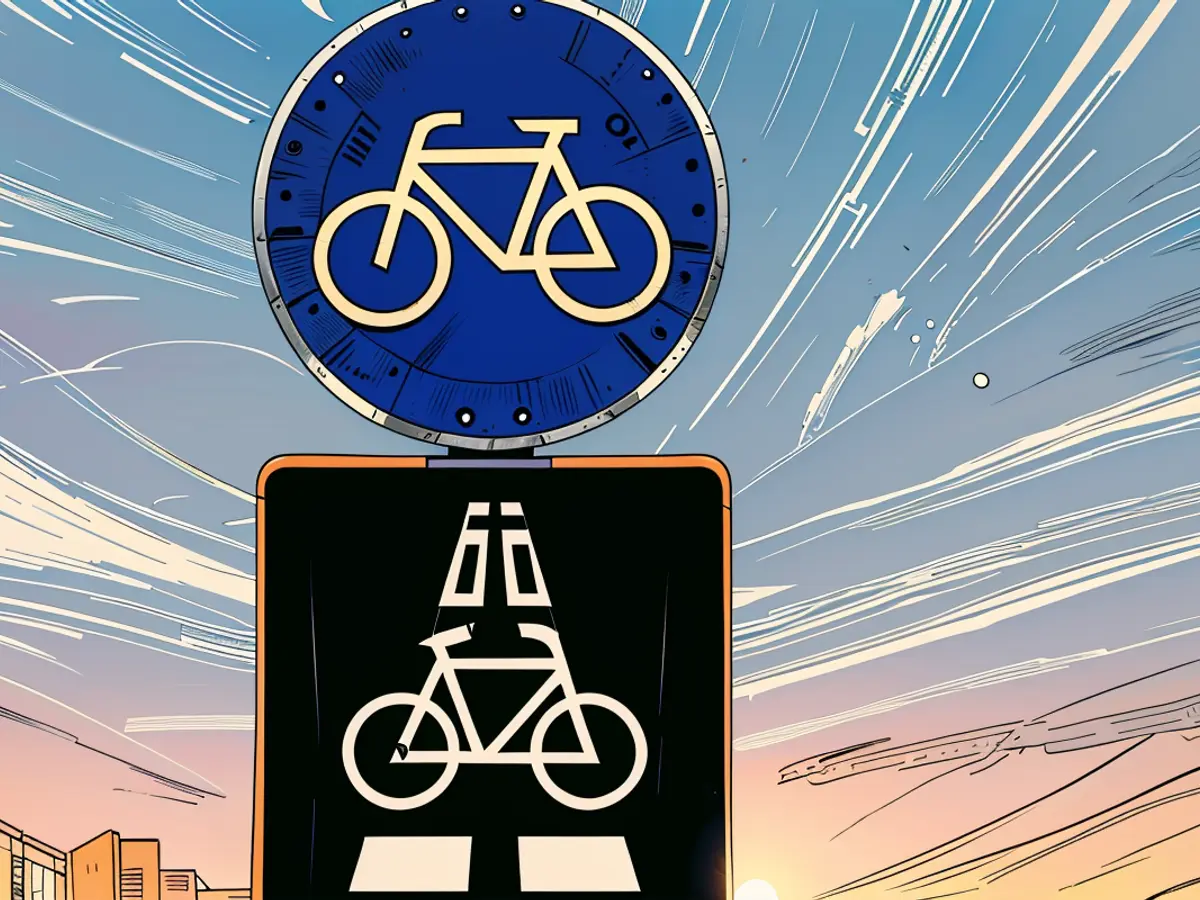bicycle - ADFC: Building of bike lanes in Saxony relatively good
The construction of bicycle expressways in Saxony for bicycles is progressing well from the perspective of the General German Bicycle Club (ADFC), according to Konrad Krause, the business manager of ADFC Saxony, speaking to the German Press Agency (dpa). "So, because traffic politics prioritized elsewhere for a long time, the topic of bicycle expressways is actually running quite well," said Krause. Movement has only been present in this area since approximately 2020.
Bicycle expressways treated as state roads
Unlike in other federal states, such as Saxony-Anhalt, it is much easier to construct large-scale projects like inter-municipal bicycle expressways in Saxony. In the Free State of Saxony, bicycle expressways have already been incorporated into the Saxon Road Law, allowing them to be treated like state roads. This means that, outside of major cities like Dresden, Leipzig, or Chemnitz, the construction of bicycle expressways is in the hands of the state - not the municipalities. "That was a crucial strategic point for us," said Krause further. He is also satisfied with the planning efforts. "I see an incredible seriousness."
Ambitious plans and reality
The Saxon Transport Ministry plans, according to its own statements, to build bicycle expressways in a total of eleven corridors. Seven corridors currently have feasibility studies underway for route determination, while the other four are being prepared. "The most advanced are the Leipzig - Schkeuditz section as part of the Halle-Leipzig bicycle expressway and the Dresden - Langebruck section as part of the Dresden-Neustadt - Radeberg bicycle expressway corridor," according to the ministry. The federal government has already given the green light for both sections, and it intends to support further planning steps.
Challenges and future prospects
"The goal of building bicycle expressways in eleven corridors is very ambitious," said the spokesperson for the Transport Ministry, Jens Jungmann. However, the complete implementation of one of the announced bicycle expressway projects by 2030 is considered illusory. Since bicycle expressways also require extensive planning, concrete statements about the spatial and temporal realization of the projects can only be made in later planning phases.
Air up top, according to ADFC chief Krause, despite the challenges. "Things are always getting bigger," he said. The biggest problem, according to Krause, is the lack of personnel. "One could turn a few screws here and there," he criticized. However, as long as the CDU remains a significant part of the Saxon state government, he does not believe that much will change in Saxony regarding personnel shortages, fair wages, and planning security.
- The easier construction of large-scale bicycle expressways in Saxony-Anhalt, compared to other federal states, is not yet a reality due to different regulatory frameworks.
- The ADFC Saxony's Business Manager, Konrad Krause, expressed his satisfaction with the progress of bicycle expressway construction in Saxony, as reported by the German Press Agency in Dresden.
- According to the Saxony Transport Ministry, there are eleven planned corridors for bicycle expressways, with some feasibility studies underway and others in preparation.
- The lack of personnel is identified as the biggest challenge in implementing the ambitious plan to build bicycle expressways in eleven corridors, as stated by ADFC Saxony's Chief Krause.
- Despite the challenges, Konrad Krause remains optimistic, stating that "things are always getting bigger," and believes that, as long as the CDU remains a significant part of the Saxon state government, there will be limited changes regarding personnel shortages, fair wages, and planning security.








